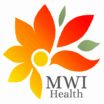Empowering Every Voice:
This July, MWI Health Shines a Light on the Unique Mental Health Challenges Faced by Racial and Ethnic Minorities, Working to Break Down Barriers and Foster Inclusive Wellness in Our Iowa and South Dakota Communities.

July is National Minority Mental Health Awareness Month, a crucial time dedicated to raising awareness about the unique mental health challenges faced by racial and ethnic minority communities in the United States. At MWI Health, with locations in West Des Moines, Iowa, and Sioux Falls, South Dakota, and offering telehealth services across Iowa and South Dakota, we are proud to join this national observance. We are committed to fostering mental well-being and ensuring equitable access to quality care for all individuals, regardless of their background.
Why National Minority Mental Health Awareness Month Matters
This month was established to honor the legacy of Bebe Moore Campbell, a mental health advocate who tirelessly worked to destigmatize mental illness in minority communities. It highlights the significant disparities in mental health care and outcomes that persist for racial and ethnic minority groups. These disparities are often driven by:
Socioeconomic Disparities: Poverty, unemployment, and lack of access to education can exacerbate mental health issues.
Cultural Stigma: In many minority communities, there is a strong cultural stigma surrounding mental illness, leading to reluctance to seek help.
Lack of Culturally Competent Providers: A shortage of mental health professionals who understand the cultural nuances and historical contexts relevant to minority communities.
Systemic Barriers: Discrimination, historical trauma, and systemic inequities contribute to poorer mental health outcomes.
The impact is significant:
Suicide Rates: While suicide rates among racial and ethnic minorities have historically been lower than those of white individuals, they have been rising in several groups, particularly among young people. For example, from 2007 to 2017, the suicide rate among Black adolescents (ages 13-19) increased by 47%, while among white adolescents, it increased by 19%.
Access to Care: According to the American Psychological Association, only about one-third of Black and Hispanic adults with a mental illness receive treatment each year, compared to roughly half of white adults.
Provider Diversity: In 2020, 84% of psychologists in the U.S. were white, while only 4% were Black, 6% were Hispanic, and 5% were Asian. This lack of diversity can hinder patients from finding culturally relatable care.
This month serves as a vital reminder that mental health is universal, yet the journey to wellness can be profoundly different for minority groups.
Our Commitment to Inclusive Mental Healthcare
MWI Health is dedicated to bridging these gaps and providing culturally sensitive, effective mental health care to everyone in our community. We believe in:
Culturally Competent Care: Our team strives to understand and respect diverse cultural backgrounds, beliefs, and experiences, ensuring that your care plan is tailored to your unique needs and values.
Reducing Stigma: We actively work to create an open, welcoming, and non-judgmental environment where individuals feel safe to discuss their mental health concerns.
Accessible Services: With convenient in-person locations and comprehensive telehealth options, we aim to remove barriers to accessing quality mental healthcare.
Comprehensive Treatment: We offer a wide range of services to address various mental health needs, ensuring that individuals from all backgrounds can find the support they need.
Join the Conversation & Seek Support
National Minority Mental Health Awareness Month is a call to action. It’s an opportunity to educate ourselves, advocate for equity, and ensure that everyone has the chance to achieve optimal mental health.
If you or a loved one in West Des Moines, Sioux Falls, or anywhere in Iowa or South Dakota is seeking mental health support, MWI Health is here for you. We offer:
Anxiety Treatment
Depression Treatment
ADD & ADHD Treatment
Opioid Addiction Treatment (Suboxone & Naltrexone)
Forensic Psychiatry Services
And a full spectrum of Comprehensive Mental Health Services
Take the First Step Towards a Brighter Tomorrow
At MWI Health, we are dedicated to helping you rediscover hope, reclaim your energy, and rebuild a life filled with purpose and joy.
Ready to find relief and start your healing journey?
Call us for a free 15-minute consultation:
West Des Moines: (515) 500-6082
Sioux Falls: (605) 307-3310 or (605) 573-2000Email us:
West Des Moines: intake@mwihealth.org
Sioux Falls: office@mwihealth.org
Visit Our Offices:
MWI Health – West Des Moines, IA
3737 Woodland Ave, Ste 410
West Des Moines, IA 50266
MWI Health – Sioux Falls, SD
4308 S Arway Drive
Sioux Falls, SD 57106
Need Immediate Mental Health Help?
If you or someone you know is experiencing a mental health emergency, connecting with immediate support is crucial. Here are essential resources for urgent situations:
For Life-Threatening Emergencies:
Call 911: If there’s an immediate threat of harm to self or others, or severe danger, call emergency services (police, ambulance, fire).
24/7 Crisis Hotlines & Text Lines (Confidential & Free):
988 Suicide & Crisis Lifeline:
Call or Text: 988
Chat: 988lifeline.org
Connects you with trained crisis counselors nationwide. Specific options for Veterans (Press 1), Spanish Speakers (Press 2), LGBTQ+ (Press 3), and ASL users are available.
Crisis Text Line:
Text: HOME to 741741
Connects you with a trained crisis counselor via text.
Other Important National Helplines & Resources:
SAMHSA’s National Helpline:
Call: 1-800-662-HELP (4357)
Free, confidential referral and information service for mental and/or substance use disorders.
National Alliance on Mental Illness (NAMI) HelpLine:
Call: 1-800-950-NAMI (6264)
Text: NAMI to 62640
Provides information, resources, and support (not for immediate crisis).
The Trevor Project (for LGBTQ Youth):
Call: 1-866-488-7386
Text: START to 678-678
Chat: thetrevorproject.org/get-help
Trans Lifeline:
Call: 1-877-565-8860
Peer support for trans and questioning individuals.
RAINN National Sexual Assault Hotline:
Call: 1-800-656-HOPE (4673)
Online Chat: online.rainn.org
National Domestic Violence Hotline:
Call: 1-800-799-SAFE (7233)
Text: START to 88788
Chat: thehotline.org
Helpful Websites for Information & Support:
988lifeline.org: Official 988 Lifeline site with chat and resources.
FindTreatment.gov: Find treatment for mental health and substance use disorders.
NAMI.org: National Alliance on Mental Illness website for education and support.
Mhanational.org (Mental Health America): Resources, information, and advocacy.
211.org: Connects you to local health and human services.
Important Note: For immediate mental health emergencies, always use phone or text lines. Email is not recommended due to potential delays in response.
